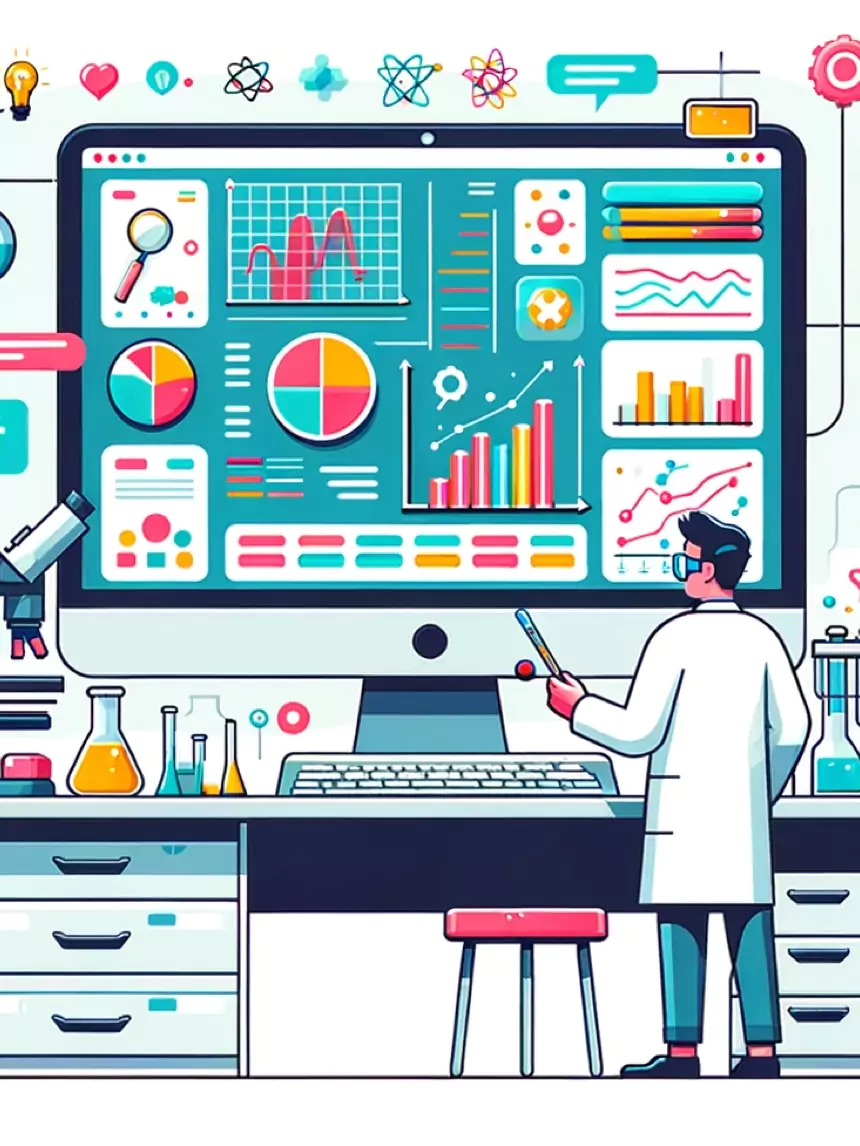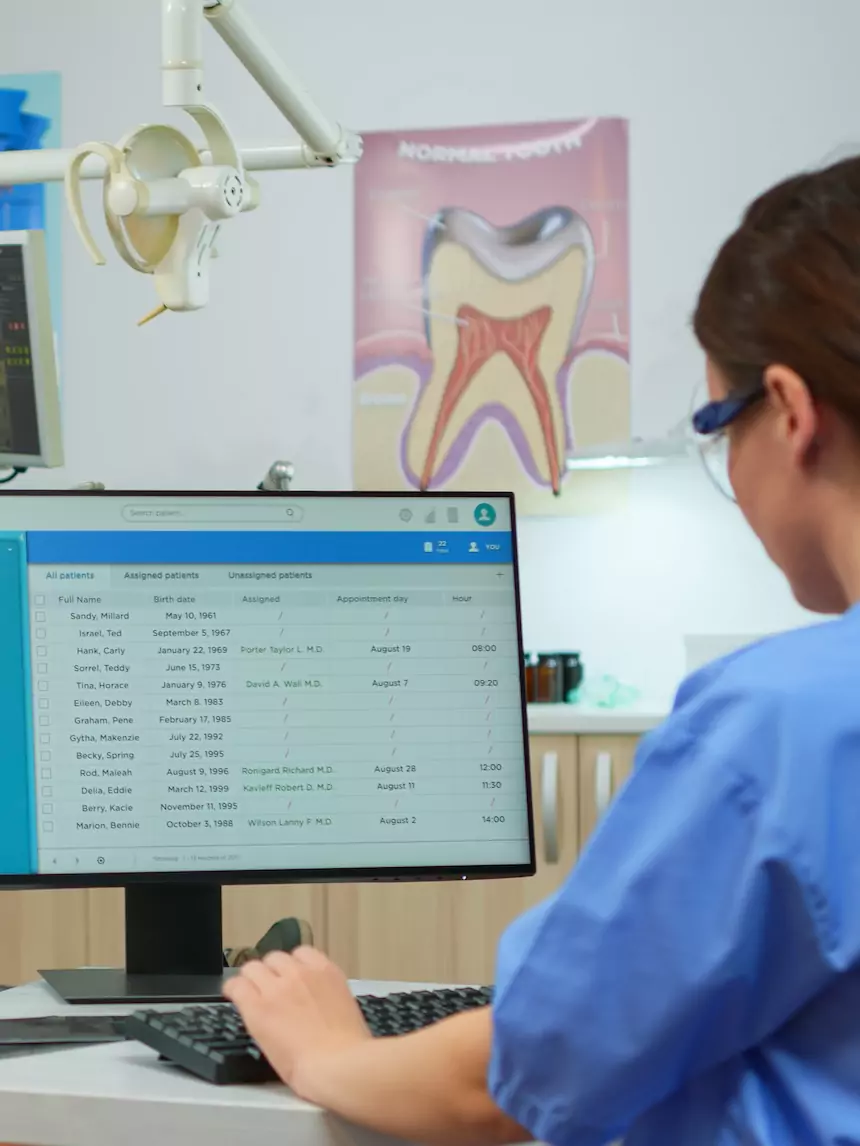Co-Founder Taliferro
LIS
A Laboratory Information System (LIS) is a sophisticated software application meticulously designed to streamline, automate, and manage various operations within a laboratory setting. Serving as a centralized hub for information flow between different laboratory workstations, a LIS significantly enhances data management capabilities. This article delves into the world of LIS, emphasizing its pivotal role in modern laboratories and how it can optimize processes while delivering substantial cost-saving advantages.
Process Optimization with LIS
The primary function of a Laboratory Information System is to streamline laboratory processes by automating routine tasks. These tasks encompass sample tracking, test ordering, result entry, and reporting. The automation of these processes eliminates the need for manual record-keeping, thus minimizing the risk of errors and inconsistencies in data. By reducing the workload of laboratory staff, a LIS empowers them to concentrate on more critical responsibilities, ultimately enhancing efficiency and productivity.
Enhanced Accuracy in Laboratory Operations
Beyond process optimization, a LIS brings a substantial improvement in the accuracy and reliability of test results. Real-time data validation and verification capabilities within the system act as gatekeepers against errors, ensuring patients receive precise and dependable diagnoses. Consequently, the need for unnecessary retesting and treatments is drastically reduced, leading to a more efficient healthcare system and enhanced patient care.


Cost Reduction through Effective Supply Management
One of the paramount benefits of incorporating a LIS is the potential for significant cost reduction in laboratory supplies. The system facilitates the efficient tracking of laboratory supplies, including reagents and consumables. By monitoring supply levels and consumption patterns, a LIS promotes optimal usage, minimizing wastage. Furthermore, this streamlined supply management process enables laboratories to make informed purchasing decisions based on accurate usage patterns, ultimately leading to cost savings.
Efficiency Improvement for Timely Diagnoses
In addition to cost savings, a LIS significantly improves the efficiency of laboratory processes. The system provides real-time access to laboratory results, enabling laboratory staff to promptly track the status of tests and samples. This expedited and accurate delivery of test results ensures timely diagnoses for patients, crucial for prompt medical intervention when necessary.
Data Security and Integrity in Laboratory Operations
A Laboratory Information System plays a pivotal role in enhancing laboratory data security. It provides a secure platform for the storage and access of sensitive information. Incorporating features such as audit trails, a LIS enables the tracking of changes made to test results and samples, effectively preventing tampering. This not only safeguards the integrity of laboratory data but also reduces the risk of data breaches and privacy violations, aligning with stringent healthcare privacy regulations.
Quality Control and Assurance
Furthermore, a LIS supports laboratory quality control and assurance processes. It offers robust tools for monitoring test performance and tracking the proficiency of laboratory staff. These features facilitate the identification of areas for improvement and enable the implementation of quality control measures. By enhancing the overall quality of laboratory testing, a LIS ensures the delivery of accurate and reliable results, instilling confidence in both patients and healthcare providers.
Regulatory Compliance with LIS
A Laboratory Information System is instrumental in ensuring regulatory compliance, a crucial aspect of laboratory operations. Adherence to regulations such as the Clinical Laboratory Improvement Amendments (CLIA) and the Health Insurance Portability and Accountability Act (HIPAA) is imperative. Non-compliance can lead to expensive fines and penalties, as well as legal actions against laboratories. A LIS automates compliance processes, reducing the likelihood of errors and ensuring that laboratories meet these stringent requirements.
Enhanced Laboratory Image and Reputation
A LIS contributes to enhancing the overall image and reputation of the laboratory. By providing a professional and efficient platform for managing laboratory information, the system enables customized reporting and analytics. Laboratories can effectively demonstrate their value to stakeholders, bolstering their reputation within the healthcare industry. This enhanced image not only attracts more business but also solidifies the laboratory's position as a trusted and reliable healthcare partner.
What is a Laboratory Information System (LIS), and how does it benefit laboratories?
A Laboratory Information System (LIS) is advanced software designed to automate and manage operations within a laboratory. It serves as a centralized hub for data flow, enhancing data management capabilities. LIS benefits laboratories by streamlining processes, improving accuracy, reducing costs, enhancing efficiency, ensuring data security, facilitating compliance with regulations, and boosting the laboratory's image.
How does a LIS optimize laboratory processes?
A LIS automates routine tasks such as sample tracking, test ordering, result entry, and reporting. This automation reduces the need for manual record-keeping, minimizing errors and freeing up laboratory staff to focus on more critical responsibilities.
How does a LIS enhance the accuracy of test results?
LIS systems incorporate real-time data validation and verification, reducing the likelihood of errors. This ensures that patients receive precise and dependable diagnoses, minimizing the need for unnecessary retesting and treatments.
Can a LIS reduce laboratory supply costs?
Yes, a LIS efficiently tracks laboratory supplies, including reagents and consumables. By optimizing supply usage and monitoring consumption patterns, it minimizes wastage and informs purchasing decisions, leading to cost savings.
How does a LIS improve laboratory efficiency?
A LIS provides real-time access to laboratory results, enabling prompt tracking of test and sample statuses. This expedites the delivery of test results, ensuring timely diagnoses for patients.
How does a LIS enhance data security and integrity in laboratories?
LIS systems provide a secure platform for storing and accessing sensitive information. They include features like audit trails to track changes, preventing data tampering and reducing the risk of data breaches.
What role does a LIS play in quality control and assurance in laboratories?
A LIS supports quality control by monitoring test performance and staff proficiency. This aids in identifying areas for improvement and implementing quality control measures, ultimately enhancing the quality of laboratory testing.


How does a LIS ensure regulatory compliance for laboratories?
LIS systems automate compliance processes, ensuring adherence to regulations such as the Clinical Laboratory Improvement Amendments (CLIA) and the Health Insurance Portability and Accountability Act (HIPAA). This helps laboratories avoid fines, penalties, and legal actions.
How does a LIS contribute to enhancing a laboratory's image and reputation?
By providing a professional and efficient platform for managing laboratory information, a LIS enables customized reporting and analytics. This showcases the laboratory's value to stakeholders, enhancing its reputation within the healthcare industry.
Is implementing a LIS a costly investment for laboratories?
While there is an initial investment, the long-term benefits of implementing a LIS, such as cost savings, increased efficiency, and improved quality, far outweigh the initial costs. It is a strategic investment in the laboratory's future success.
Can laboratories combine a LIS with existing systems or technologies?
Yes, laboratories can integrate a LIS with existing systems and technologies to maximize their efficiency and effectiveness. Many LIS solutions are designed to be adaptable and compatible with various laboratory setups.
How do I choose the right LIS for my laboratory's specific needs?
Choosing the right LIS involves assessing your laboratory's unique requirements, including its size, specialties, and workflow. Consult with LIS providers to find a solution that aligns with your specific needs and goals.
Are there ongoing maintenance and support requirements for a LIS?
Yes, like any software system, a LIS may require regular updates and maintenance. Most LIS providers offer support services to ensure smooth operation and address any issues that may arise.
Can a LIS be customized to accommodate specific laboratory processes or requirements?
Many LIS systems offer customization options to adapt to specific laboratory processes and requirements. Discuss customization options with your LIS provider to tailor the system to your laboratory's needs.
How long does it typically take to implement a LIS in a laboratory?
The implementation timeline varies depending on the size and complexity of the laboratory and the chosen LIS solution. It's advisable to work closely with the LIS provider to create a realistic implementation plan and timeline.
Is training provided for laboratory staff when a LIS is implemented?
Yes, most LIS providers offer training programs to ensure that laboratory staff can effectively use the system. Training is crucial for maximizing the benefits of a LIS and ensuring a smooth transition to the new system.
Can a LIS be scaled as the laboratory grows or changes over time?
Many LIS solutions are designed to be scalable, allowing laboratories to expand or adapt the system to accommodate growth and changing needs.
What are the potential risks or challenges associated with implementing a LIS in a laboratory?
While the benefits of a LIS are significant, challenges may include initial costs, staff training, and the need for effective change management. These challenges can be mitigated with proper planning and support from the LIS provider.
How can laboratories find reputable LIS providers and assess their offerings?
Research and compare LIS providers, looking for those with a proven track record, positive customer reviews, and solutions that align with your laboratory's needs. Conduct thorough evaluations and consider consulting with industry experts if necessary.
Is there a return on investment (ROI) associated with implementing a LIS in a laboratory?
Yes, laboratories typically experience a positive ROI over time through cost savings, improved efficiency, and enhanced quality of services. The long-term benefits make the investment in a LIS highly worthwhile for laboratories of all sizes and specialties.
Conclusion
A Laboratory Information System (LIS) is a transformative tool for modern laboratories. It optimizes laboratory processes, enhances accuracy, reduces costs through efficient supply management, improves efficiency, ensures data security and integrity, supports quality control and assurance, ensures regulatory compliance, and enhances the laboratory's image. By implementing a LIS, laboratories can create a more effective and efficient environment, delivering superior outcomes while maintaining the highest standards of quality and compliance in the healthcare sector. Embracing LIS technology is not just a choice; it's a strategic investment in the future of laboratory operations.
Tyrone Showers
